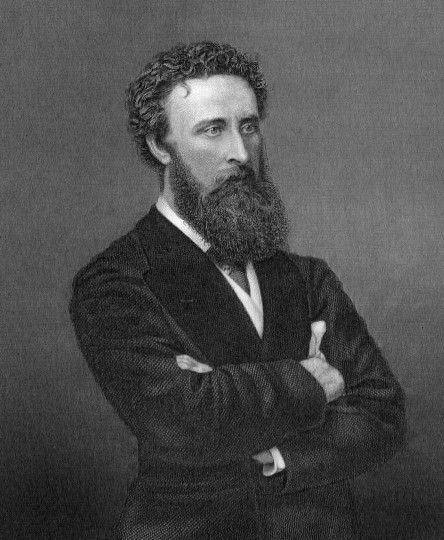“Only by knowledge of that which is not thyself, shall thyself be learned.”
"Γνωθι Σεαυτον" ("Know Thyself"), in The Poetical Works of Owen Meredith (1867), Vol. I, p. 247.
Robert Bulwer-Lyton, 1st Earl of Lytton was an English statesman and poet . He served as Viceroy of India between 1876 and 1880, during which time Queen Victoria was proclaimed Empress of India.
An accomplished and popular diplomat, Lytton was afforded the rare tribute – especially for an Englishman – of a state funeral in Paris, although as Viceroy of India he has been criticised for his handling of the Great Famine of 1876–78 and the Second Anglo-Afghan War. His son Victor Bulwer-Lytton, 2nd Earl of Lytton, who was born in India, returned as Governor of Bengal and was briefly acting Viceroy.

“Only by knowledge of that which is not thyself, shall thyself be learned.”
"Γνωθι Σεαυτον" ("Know Thyself"), in The Poetical Works of Owen Meredith (1867), Vol. I, p. 247.
“The world is a nettle; disturb it, it stings.
Grasp it firmly, it stings not.”
Part iii, canto ii. Quoted by Walt Whitman in Roaming in Thought.
Lucile (1860)
Changes, reported in Bartlett's Familiar Quotations, 10th ed. (1919).
“The things which must be must be for the best.”
Imperfection, reported in Bartlett's Familiar Quotations, 10th ed. (1919).
Part ii, canto vi.
Lucile (1860)
“Genius does what it must, talent does what it can.”
Last Words, reported in Bartlett's Familiar Quotations, 10th ed. (1919).
“Oh, moment of sweet peril, perilous sweet! When woman joins herself to man.”
The Wanderer, Prologue, Stanza 1, reported in Bartlett's Familiar Quotations, 10th ed. (1919).
Part i, canto ii.
Lucile (1860)
“Art is Nature made by Man
To Man the interpreter of God.”
The Artist, reported in Bartlett's Familiar Quotations, 10th ed. (1919).
The Wanderer, Book iv, Stanza 9, reported in Bartlett's Familiar Quotations, 10th ed. (1919).
“Those true eyes
Too pure and too honest in aught to disguise
The sweet soul shining through them.”
Part ii, canto ii. Compare: "Ils sont si transparents qu’ils laissent voir votre âme" (translated: Eyes so transparent that through them the soul is seen), Theophile Gautier, The Two Beautiful Eyes.
Lucile (1860)
Part ii, canto ii.
Lucile (1860)
“The unknown
Is life to love, religion, poetry.”
Source: The Wanderer (1859), Prologue, Part i, stanza xxi, p. 8.